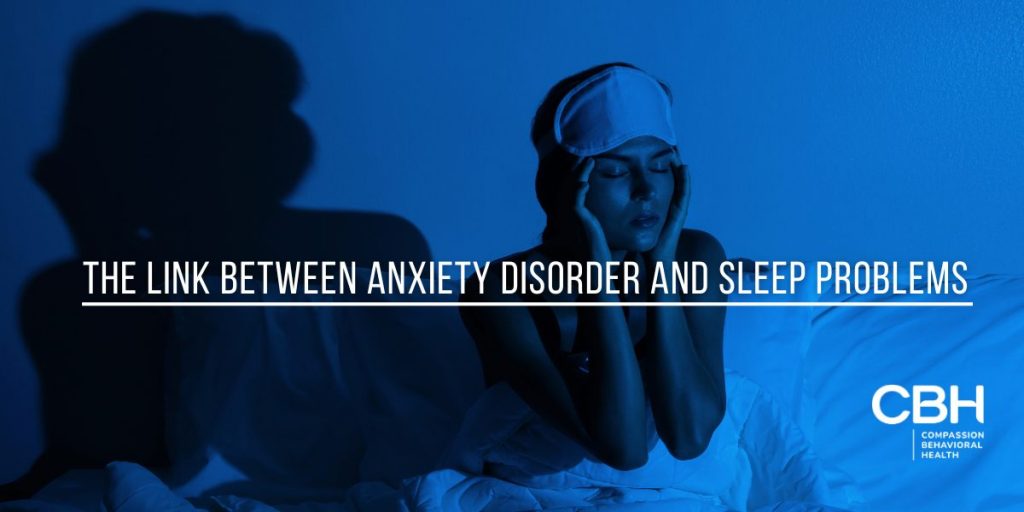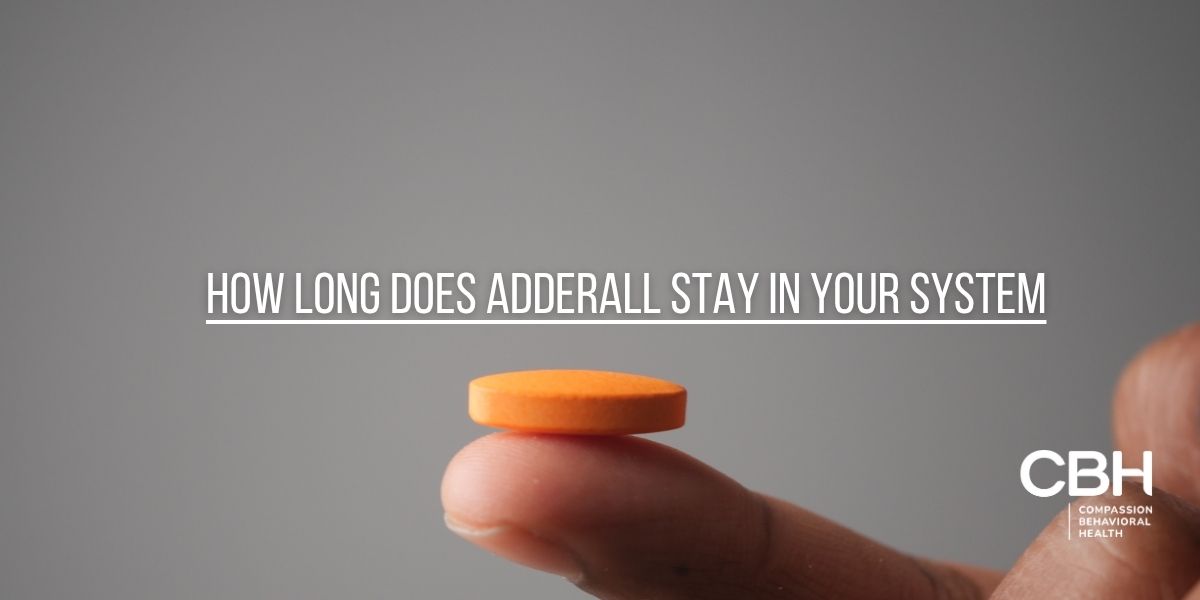In today’s fast-paced world, anxiety disorders and sleep problems are prevalent among many individuals. Understanding the relationship between these two concerns is essential for effective management and treatment. This article will delve into the definitions, symptoms, and various types of anxiety disorders, explore the common sleep problems associated with them, and discuss the science behind their connection. Additionally, we will outline treatment options that can help mitigate anxiety-induced sleep issues.
Defining Anxiety Disorder
Anxiety disorders refer to a group of mental health conditions characterized by excessive fear, worry, or apprehension. These disorders can interfere significantly with daily activities and overall quality of life. According to the American Psychological Association, anxiety disorders are the most common mental health issue in the United States. They can affect anyone, regardless of age, gender, or background, and often co-occur with other mental health issues, such as depression or substance abuse, complicating the treatment process.
Understanding anxiety disorders is crucial, as they can manifest in various forms and intensities. Many individuals may experience anxiety in response to stress, but for those with anxiety disorders, these feelings can become overwhelming and persistent. The impact of anxiety can extend beyond the individual, affecting relationships, work performance, and overall well-being. As awareness grows, it is increasingly recognized that early intervention and support can lead to better outcomes for those struggling with these conditions.
Symptoms of Anxiety Disorder
The symptoms of anxiety disorders can vary widely among individuals, but common signs include:
- Constant feelings of restlessness or being on edge
- Fatigue or chronic tiredness
- Difficulty concentrating or focusing
- Sleep disturbances, such as insomnia or nightmares
- Increased heart rate and palpitations
- Muscle tension
- Irritability
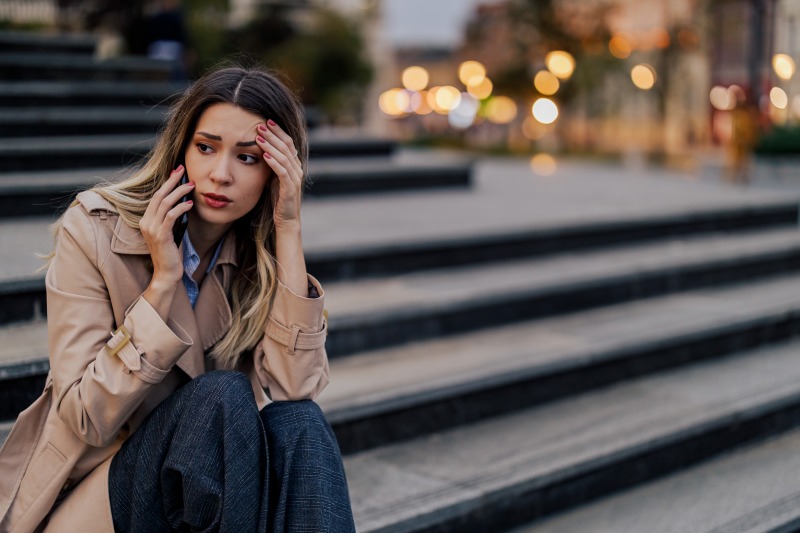
These symptoms can manifest in various ways, making it essential for individuals to seek help if they experience prolonged distress. The physical symptoms of anxiety can often mimic those of other medical conditions, leading to misdiagnosis or delayed treatment. For instance, individuals may visit their doctor for heart palpitations, only to discover that anxiety is the underlying cause. Recognizing the interplay between physical and mental health is vital for effective treatment and management of anxiety disorders.
Different Types of Anxiety Disorders
There are several types of anxiety disorders, including:
- Generalized Anxiety Disorder (GAD): Characterized by excessive and uncontrollable worry about various aspects of life.
- Social Anxiety Disorder: Involves intense fear or avoidance of social situations due to self-consciousness and fear of judgment.
- Specific Phobias: An irrational and persistent fear of specific objects or situations.
- Panic Disorder: Characterized by sudden and repeated panic attacks, causing intense fear and physical symptoms.
- Obsessive-Compulsive Disorder (OCD): Involves unwanted, persistent thoughts (obsessions) that drive individuals to engage in repetitive behaviors (compulsions).
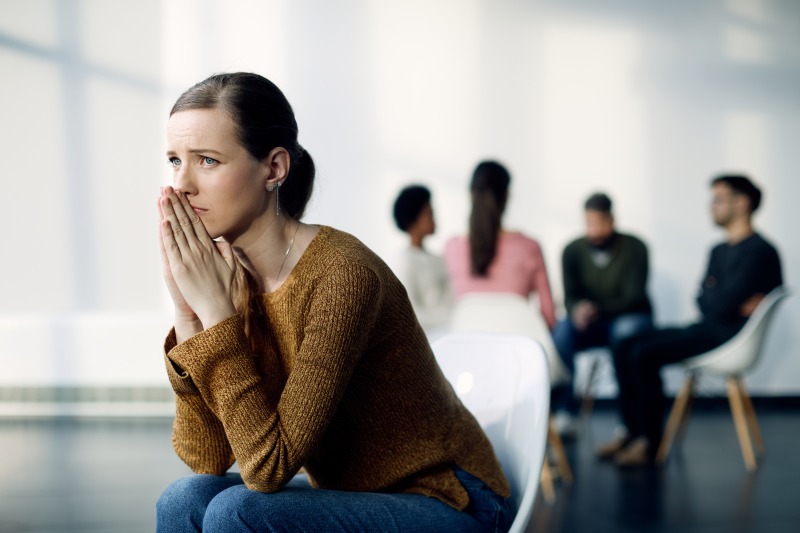
Each type of anxiety disorder can have unique symptoms and triggers, making it crucial for individuals to receive appropriate diagnosis and treatment. For example, while someone with GAD may worry about a wide range of issues, a person with a specific phobia may experience overwhelming fear in response to a particular object, such as spiders or heights. Furthermore, the onset of these disorders can vary, with some individuals experiencing symptoms in childhood, while others may develop them later in life due to stressors or traumatic events. Understanding these nuances can help in tailoring effective treatment plans that address the specific needs of each individual.
Exploring Sleep Problems
Sleep problems are another common issue that can both stem from and exacerbate anxiety disorders. Understanding these problems is vital for improving both mental health and sleep quality. The relationship between sleep and anxiety is complex, with each influencing the other in a cyclical manner. For instance, anxiety can lead to racing thoughts and heightened arousal, making it difficult to relax and fall asleep. Conversely, poor sleep can lead to increased anxiety, creating a challenging situation for those affected.
Common Sleep Disorders
Several sleep disorders can be prevalent among individuals with anxiety disorders:
- Insomnia: Difficulty falling asleep or staying asleep, leading to overall poor sleep quality and daytime fatigue. Chronic insomnia can lead to significant distress and may require behavioral therapies or medications for effective management.
- Sleep Apnea: A condition characterized by repeated interruptions in breathing during sleep, often accompanied by loud snoring. This disorder can lead to fragmented sleep and has been linked to increased cardiovascular risks, making it essential to seek treatment.
- Restless Legs Syndrome (RLS): An uncontrollable urge to move the legs, often accompanied by uncomfortable sensations, leading to sleep disturbances. RLS can be particularly troubling as it often worsens in the evening, making it difficult to settle down for the night.
- Narcolepsy: A neurological disorder affecting the control of sleep and wakefulness, often resulting in excessive daytime sleepiness and sudden sleep attacks. This condition can severely impact daily functioning and quality of life, necessitating a comprehensive treatment approach.
Identifying and treating these sleep disorders is crucial for improving overall health and addressing anxiety effectively. Treatment options may include lifestyle changes, cognitive behavioral therapy for insomnia (CBT-I), and, in some cases, medication. Understanding the specific nature of each disorder can empower individuals to seek appropriate help and make informed decisions about their health.
The Impact of Sleep Deprivation
Sleep deprivation can have severe repercussions on physical and mental health. It is associated with:
- Impaired cognitive function and memory
- Increased irritability and mood swings
- Higher levels of stress and anxiety
- Higher susceptibility to depression
- Decreased immune function
Individuals suffering from anxiety disorders often report sleep problems, which can create a vicious cycle where anxiety disrupts sleep, and lack of sleep exacerbates anxiety symptoms. Furthermore, chronic sleep deprivation can lead to long-term health issues, including obesity, diabetes, and cardiovascular disease. The toll on mental health can be equally significant, as persistent sleep issues may contribute to the development of additional mental health disorders, creating a multifaceted challenge that requires a holistic approach to treatment and management.
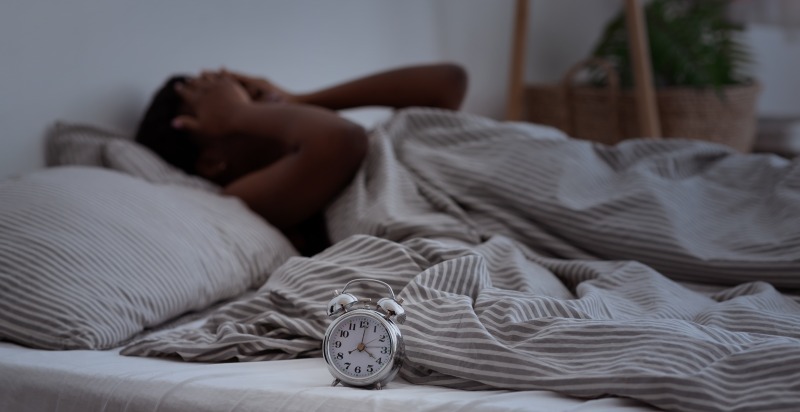
The Connection Between Anxiety and Sleep
The interplay between anxiety and sleep issues is complex and multifaceted. Understanding this connection is essential in developing effective strategies for treatment.
How Anxiety Affects Sleep
Individuals with anxiety disorders often experience heightened arousal, making it difficult to relax and fall asleep. Their minds may race with worries, intrusive thoughts, and a sense of impending doom, all of which can hinder the body’s natural ability to prepare for sleep.
Additionally, anxiety can lead to physical symptoms such as increased heart rate and muscle tension, further preventing restful sleep. Nightmares and nighttime panic attacks can also contribute to poor sleep quality. The body’s fight-or-flight response, triggered by anxiety, can keep individuals in a state of hypervigilance, making it nearly impossible to unwind at the end of the day. This constant state of alertness can create a vicious cycle where the anticipation of sleeplessness itself becomes a source of anxiety, further compounding the problem.
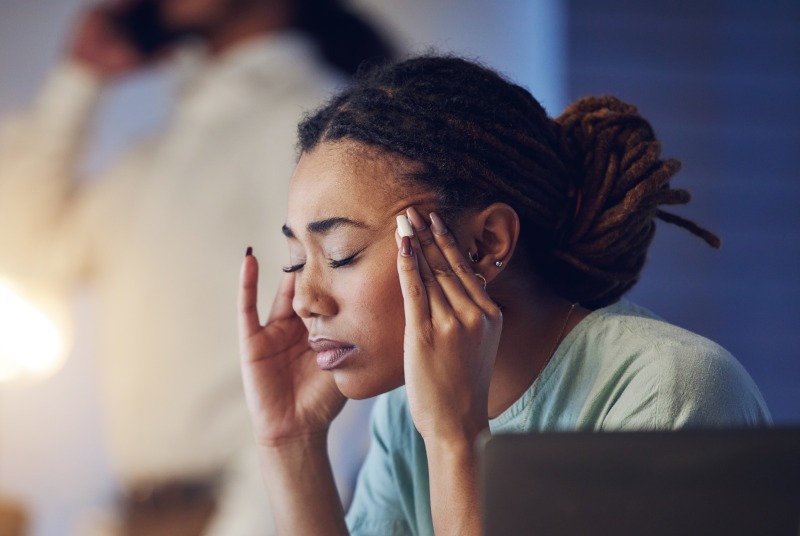
How Sleep Problems Can Lead to Anxiety
Conversely, poor sleep can exacerbate anxiety symptoms. Lack of restorative sleep can impair emotional regulation, making individuals more vulnerable to stress and anxiety triggers. The resulting fatigue can heighten feelings of helplessness and irritability, further fueling anxiety disorders.
Research has shown that improving sleep quality can result in significant reductions in anxiety symptoms, highlighting the importance of addressing sleep issues in treatment. Moreover, the relationship between sleep and anxiety is not merely a one-way street; chronic sleep deprivation can lead to cognitive impairments, affecting memory and decision-making abilities. This can create a feedback loop where anxiety about performance and daily responsibilities increases, leading to even more sleep disturbances. As such, addressing both sleep hygiene and anxiety management techniques is crucial for breaking this cycle and fostering overall mental well-being.
The Science Behind Anxiety and Sleep Problems
The connection between anxiety and sleep is not merely anecdotal; scientific research has illuminated various underlying mechanisms at play.
The Role of the Brain in Anxiety and Sleep
The brain plays a pivotal role in regulating both sleep and anxiety. Structures such as the amygdala and prefrontal cortex are involved in emotional processing and sleep regulation. Dysregulation in this system can contribute to both increased anxiety and sleep disturbances.
Neurotransmitters, such as serotonin and gamma-aminobutyric acid (GABA), also influence anxiety and sleep. Individuals with anxiety disorders may have imbalances in these neurotransmitters, leading to increased feelings of anxiety and difficulty sleeping. Furthermore, the circadian rhythm, which is the body’s internal clock, can be disrupted by anxiety, causing a cascade of effects that further complicate sleep patterns. For instance, individuals may find themselves unable to fall asleep due to racing thoughts or may wake frequently throughout the night, perpetuating a cycle of fatigue and heightened anxiety.
Hormonal Imbalances and Their Impact
Hormonal changes associated with stress and anxiety can also affect sleep quality. Elevated levels of cortisol, a stress hormone, can lead to heightened arousal and disrupted sleep patterns. This hormonal imbalance not only affects the duration of sleep but can also impact the quality, leading to lighter, less restorative sleep.
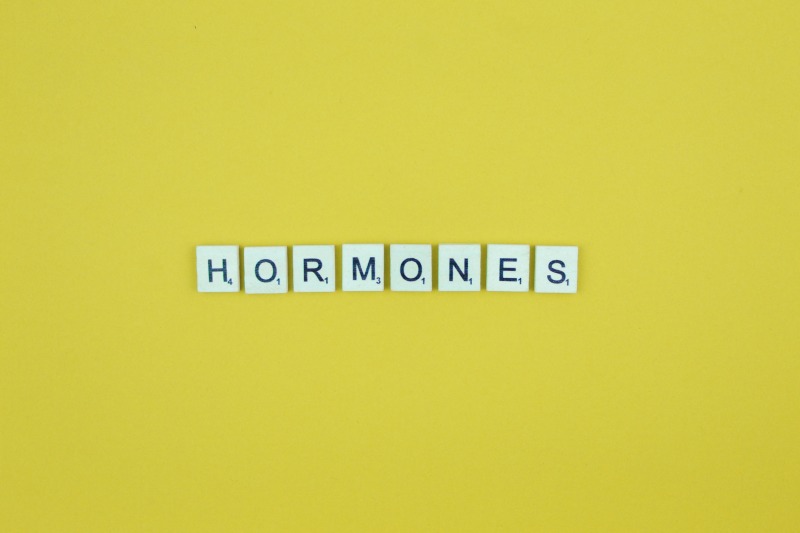
Understanding the hormonal connections between anxiety and sleep is vital for developing effective treatment strategies that target both issues simultaneously. For example, therapies that focus on reducing cortisol levels, such as mindfulness meditation or cognitive-behavioral therapy, can potentially improve sleep quality while alleviating anxiety symptoms. Additionally, lifestyle modifications, including regular exercise and a balanced diet, can help stabilize hormone levels and promote better sleep hygiene, creating a holistic approach to managing the interplay between anxiety and sleep disturbances.
Treatment Options for Anxiety-Induced Sleep Problems
Effectively addressing both anxiety and sleep issues often requires a multifaceted approach. There are various treatment options available.
Psychological Therapies
Psychological therapies, such as cognitive-behavioral therapy (CBT), can be highly effective in treating both anxiety and sleep problems. CBT can help individuals identify and challenge negative thought patterns that contribute to anxiety and develop healthier coping strategies. Through structured sessions, individuals learn to reframe their thoughts and behaviors, which can lead to significant improvements in both their anxiety levels and sleep quality.
In addition to CBT, other therapeutic approaches, such as mindfulness and relaxation techniques, can aid in reducing anxiety and improving sleep quality. Mindfulness practices encourage individuals to focus on the present moment, which can help alleviate the racing thoughts that often accompany anxiety. Techniques such as deep breathing, progressive muscle relaxation, and guided imagery can also promote a sense of calm and prepare the body for restful sleep. Many practitioners recommend incorporating these techniques into a nightly routine to signal to the body that it is time to wind down.

Another innovative therapy gaining recognition is neurofeedback. Neurofeedback is a non-invasive technique that trains individuals to regulate their brain activity. By monitoring brain waves and providing real-time feedback, neurofeedback can help individuals achieve a state of calm and focus, reducing symptoms of anxiety and improving sleep quality. This method targets the neurological basis of anxiety, offering a complementary approach to traditional therapies. Neurofeedback has shown promise in helping individuals retrain their brains to respond more adaptively to stress, making it an increasingly valuable tool in anxiety treatment.
Medication and Its Effectiveness
In some cases, medications may be necessary to manage anxiety symptoms and improve sleep. Commonly prescribed medications include:
- Selective serotonin reuptake inhibitors (SSRIs)
- Benzodiazepines for short-term management
- Sleep aids such as melatonin or other sedatives
While medications can provide relief, it’s essential for individuals to work closely with healthcare professionals to ensure that they are used safely and effectively, considering potential side effects and interactions. For instance, while benzodiazepines can be effective for short-term anxiety relief, they may lead to dependency if used over an extended period. Therefore, healthcare providers often recommend combining medication with therapy for a more holistic approach to treatment.
Moreover, lifestyle changes can also play a significant role in managing anxiety and sleep disorders. Regular physical activity, a balanced diet, and good sleep hygiene practices—such as maintaining a consistent sleep schedule and creating a calming bedtime routine—can enhance the effectiveness of both psychological and pharmacological treatments. Engaging in activities that promote relaxation, such as yoga or meditation, can further support mental well-being and improve the overall quality of sleep.
Anxiety Disorder Treatment at CBH

If you’re struggling with anxiety disorders and sleep problems, remember that you don’t have to face these challenges alone. At Compassion Behavioral Health, we understand the intricate link between mental health and restful sleep. Our customized approach to treatment is designed to foster sustainable recovery and improve your overall well-being. Our team of experts is ready to support you with tailored rehabilitation programs that address both your mental health and sleep concerns. Conveniently located in South Florida, our Hollywood rehab center is a place of serenity and healing. Call Us Today and take the first step towards reclaiming the peaceful sleep and peace of mind you deserve.
